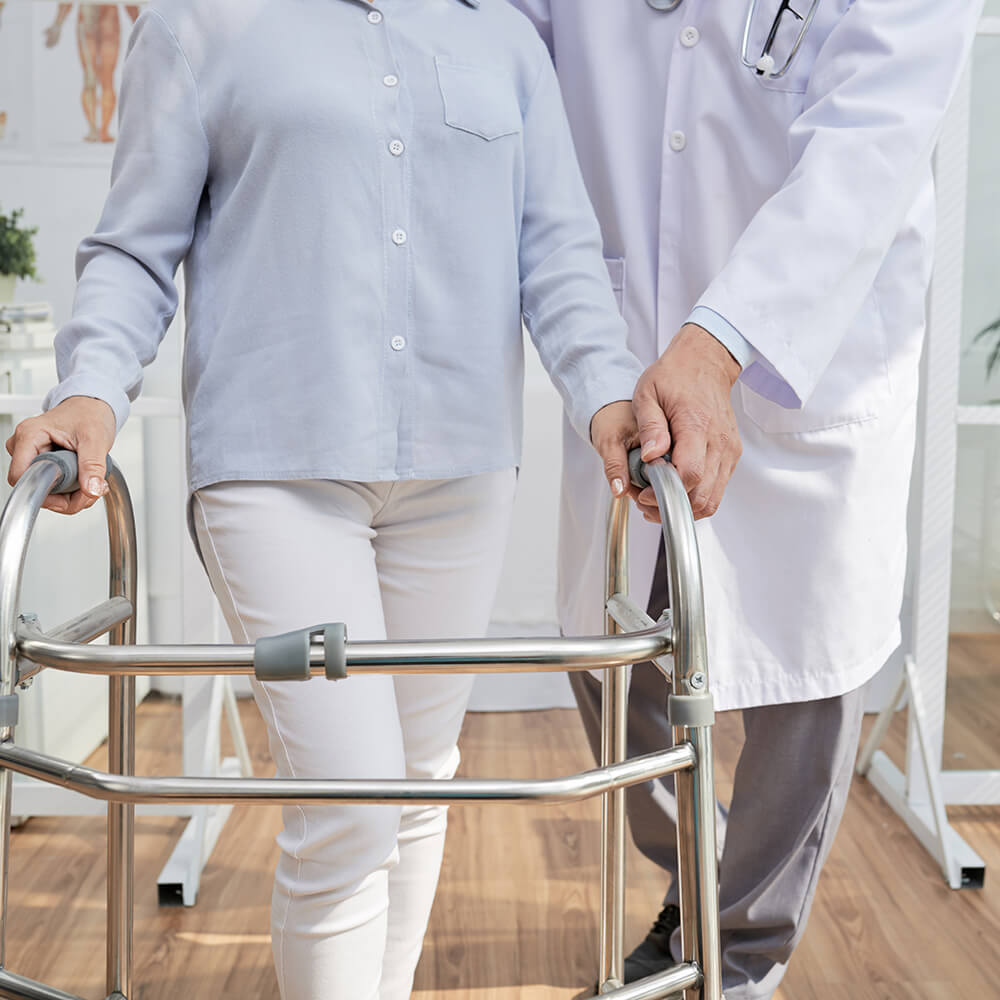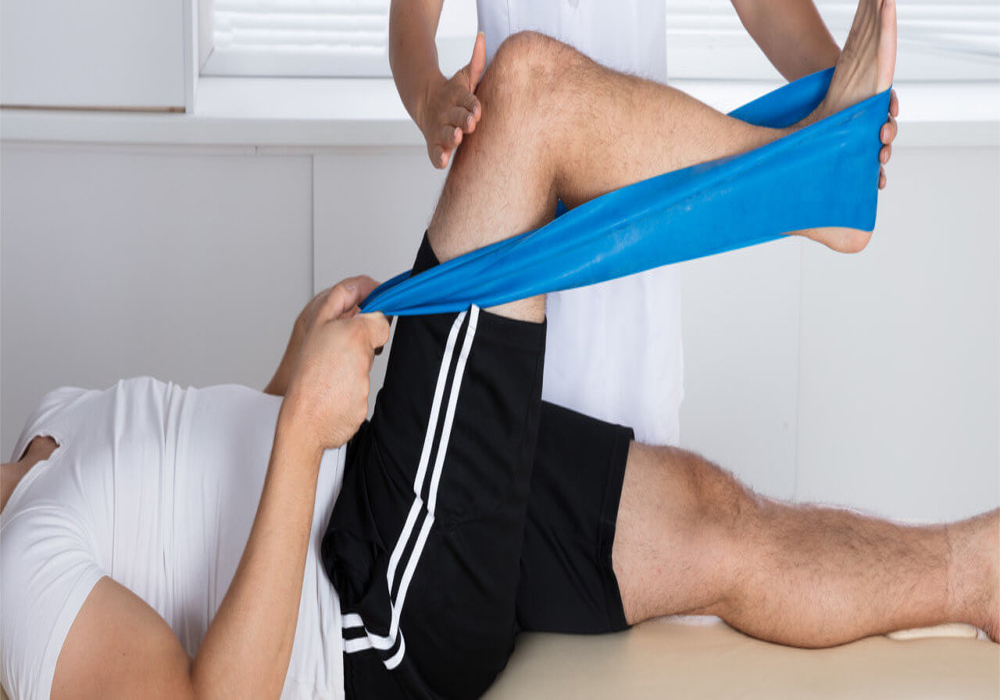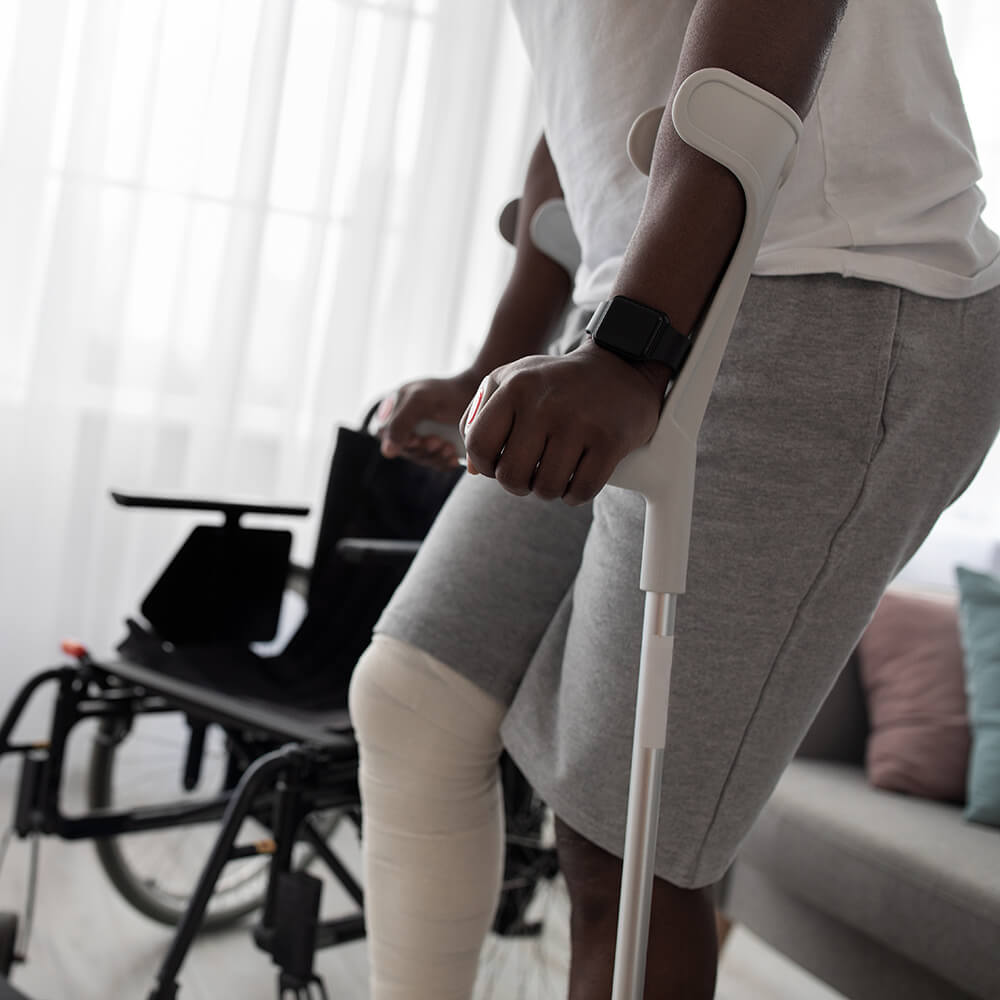Post Operative Rehab
Post Operative Rehab
Following an operation or a surgery, it is crucial to progress with rehabilitation. Your physiotherapist will support you to help achieve your post-operative goals, from helping around the house to returning to your favourite sports. A tailored rehabilitation program will be created, taking into consideration your needs and limitations, to guide and assist you with getting back to your regular routine. Typically, a rehabilitation program will involve:
- A home exercise program
- Education and guidance with recovery
- Pain management
- Manual therapy
- Electrotherapy
- Reducing need for orthopaedic aids
How long is it and what will it involve?
As every surgery involves different needs and severities, post-operative rehabilitation can last anywhere between a couple of months to a year. Through different stages of your program, rehabilitation will aim to:
- Return to pre-injury function
- Restore flexibility and range of motion
- Manage pain and swelling
- Increase muscular strength

What procedures require post-operative rehabilitation?
Our physiotherapists have post-operative rehabilitation experience in:
- Spinal repairs (E.g. laminectomy, microdiscectomy, decompression)
- Tendon and soft tissue repairs
- Fracture management
- Joint replacements
Neuro Rehab
A Guide To Our Neuro Rehab and Other Rehabilitative Therapies
Acute injury, shock, and strain can cause physical damages to your body that may affect its functioning in daily life. Physio Cure is a trusted physiotherapy, clinical Pilates, and rehabilitation centre in Melbourne. Through our neuro-rehab therapy programme, we aim to help you recover from physical trauma faster, reconditioning your nervous system towards its pre-injury performance.
What is Neurological Rehabilitation and How Does It Work?
- You may benefit from neurological rehab therapy if you have recently experienced a traumatic brain or spinal cord injury, brain abscess, meningitis, or a stroke. Rehab is also typically recommended for neuromuscular disorders, such as Bell palsy or muscular dystrophy. It may also help ease the symptoms of degenerative disorders that affect the nervous system, such as multiple sclerosis, Parkinson’s disease and Alzheimer’s.
- Neuro rehab works on the principle of neuroplasticity. Neuroplasticity is your brain’s ability to change and modify its physical structure and function as you learn and unlearn behaviours through life experience. During neurological rehab, your doctor will help you practice and relearn motions, behaviours, and other capabilities you may have lost due to injury or disease.
- A neurological rehab programme is tailored to your needs based on the level of damage sustained to the nervous system and the goals you hope to achieve. Neuro rehab may include speech therapy, mobility training, exercise programmes, and activities that help boost your memory and cognitive function. Your doctor may also suggest counselling, stress management plans, and support groups.
- There are seven phases of neurological rehab available based on your injuries and independence levels determined by the standard Barthel Index. As your neural functioning improves, your treatment plan will evolve to retrain more advanced brain areas. Patients typically progress from acute ICU treatment to consciousness restoration, followed by mobilisation and, finally, social reintegration.


Other Types of Rehabilitation Therapies We Offer
- Sports injuries: Chronic and acute conditions such as joint and ankle sprains, tennis elbow, Plantar Fasciitis, muscle tears, or knee or shoulder injuries may call for rehab. A physiotherapist can help determine the extent of your injury through various physical assessments and offer treatment plans to prevent future damage to your muscles and joints. Sports physio often includes shockwave treatment, clinical Pilates, and manual therapy.
- Post-operative rehab: Going for physiotherapy after an operation can help you regain movement and flexibility in the affected muscles and joints. Post-operative rehabilitation often includes a tailored exercise programme to help strengthen your muscles and ease pain and discomfort during recovery. This therapy aims to help you return to healthy pre-operative functioning with confidence.
- Postpartum rehabilitation: Pregnancy and childbirth places strain on your body, and postpartum physio can help you rebuild your muscular strength, flexibility, and mobility. Pelvic floor rehab therapy can help assess and strengthen weakened pelvic muscles essential for continence and sexual health after childbirth. Abdominal and back strengthening exercises are also beneficial physical therapies after pregnancy.
Three Tips for Making the Most of Your Physio Rehabilitation Plan
Successful rehabilitation requires active participation and patience while you relearn the movements and behaviours needed to lead a healthy, independent, and fulfilling life. Here are three ways to make the most out of your visit to our rehab clinic for more effective rehabilitation:
- Commit to your goals. Setting realistic goals for yourself can help you stay motivated during rehabilitation. Remember to celebrate each milestone and progress marker as you work towards your desired outcome. Making a commitment to attend every appointment and taking your rehabilitation plan seriously cultivates a positive state of mind that may help speed up your recovery.
- Communicate with your physiotherapist. Building a relationship with your physiotherapist can help you feel more comfortable sharing your challenges and pain points during therapy. Better communication allows for more tailored support and treatment plans to help you recover faster. Your physio can also offer emotional support and guidance during challenging parts of your recovery to help you manage stress and boost confidence.
- Follow your exercise plan. Many rehabilitation programmes include at-home exercise plans to help you practice what you learn during physiotherapy sessions. Following your plan diligently will speed up your recovery and make your physio appointments run more smoothly. Keeping a journal and making notes during your sessions can make it easier to follow your plan at home and track your progress.
Visit Our Melbourne Rehab Clinic for Dedicated Care
Physio Cure is a trusted physiotherapy and rehabilitation clinic in Melbourne. Our professional physiotherapists are passionate about helping you achieve your physical goals and restoring wellbeing after an injury, operation, or sickness. We strive to empower each patient that enters our clinic to rejoin social groups, revive an active lifestyle, and complete daily tasks with ease.
Contact us to book your first session.

Book an appointment today
Start feeling better today and call Physio Cure on 03 8525 8360, email us at reception@physiocure.com.au or book online today to get one of our physiotherapists at our Elwood, Elsternwick or Beaumaris clinics to assess you professionally.
SHOCKWAVE THERAPY
Helping improve chronic musculoskeletal conditions
How to find us
Physio Cure is conveniently located in Elwood, Elsternwick and Beaumaris. Our contemporary clinics offer modern private physiotherapy treatment rooms, a fully equipped strength and conditioning gym and a bespoke open plan studio for Clinical Pilates at our Elsternwick location.

